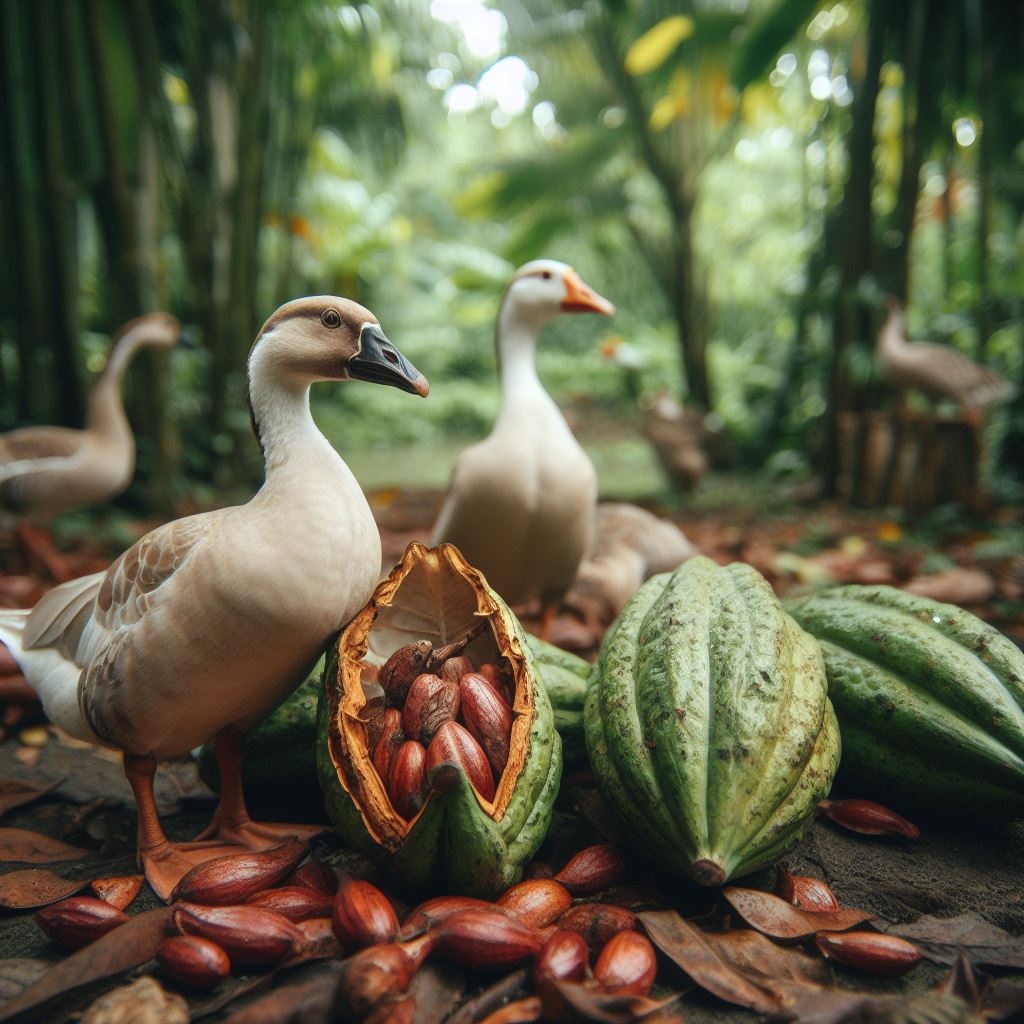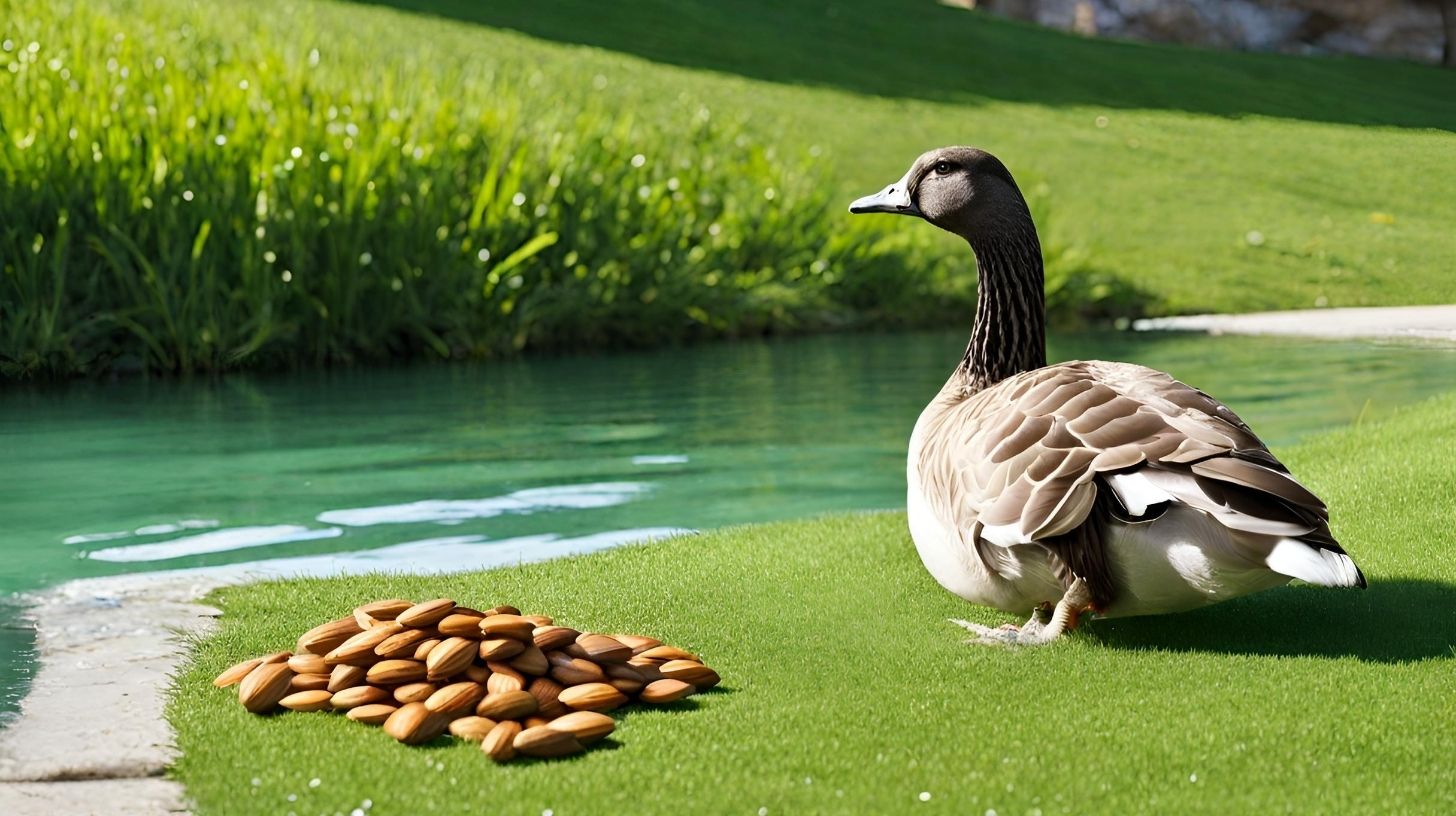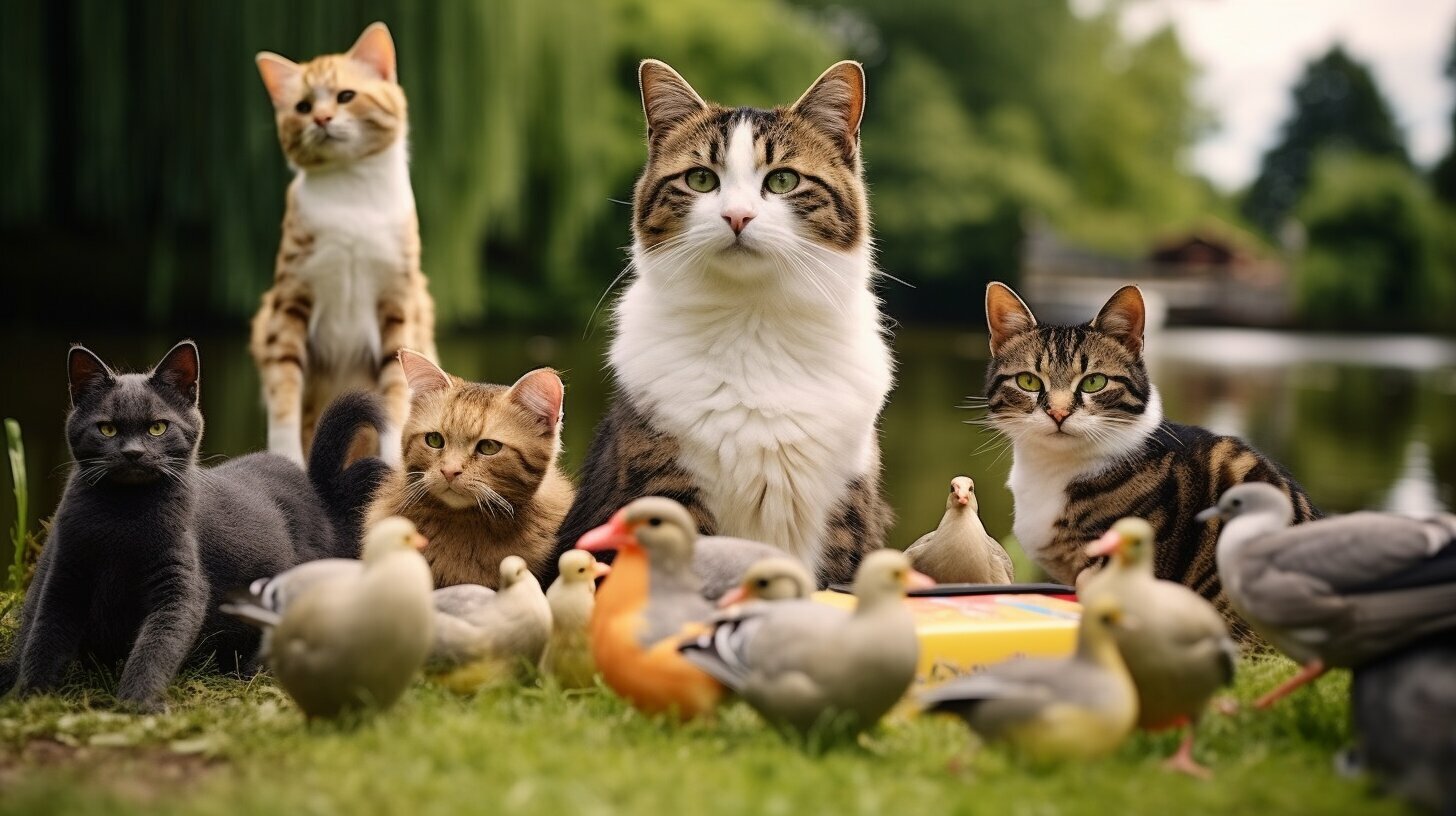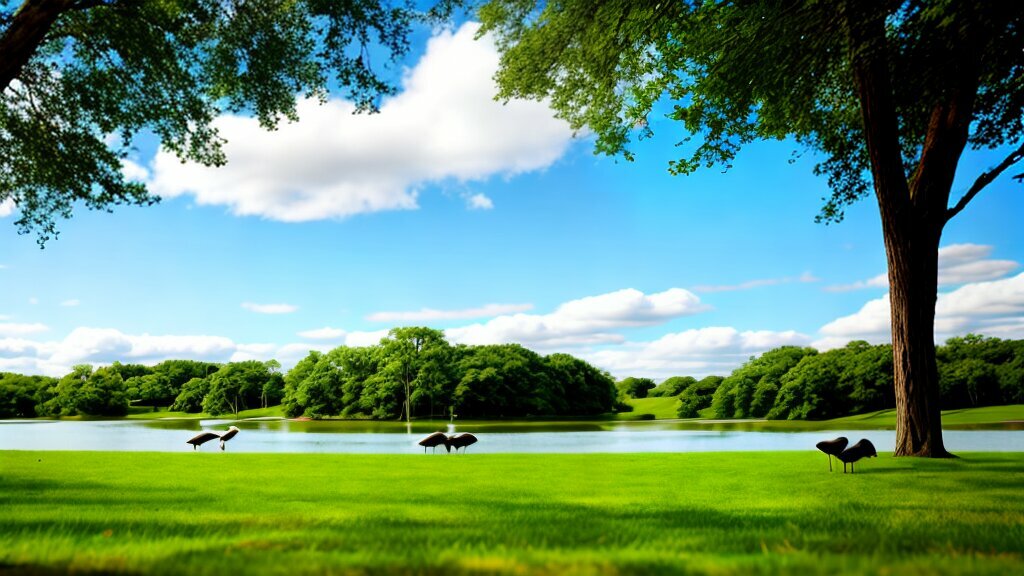Can Geese Eat Sunflower Seeds? Find Out the Surprising Answer!

Table of content:
As a curious animal lover, you might be wondering if geese can safely consume sunflower seeds. While these birds can digest various types of seeds, it is important to consider whether sunflower seeds align with their dietary preferences and if they pose any risks. In this section, we will explore whether geese can eat sunflower seeds and what factors to consider.
Key Takeaways:
- Geese are primarily herbivores, preferring to consume grasses, plants, and grains.
- Sunflower seeds can provide essential nutrients and energy for geese.
- Feeding geese sunflower seeds may pose risks such as choking or digestive issues.
Understanding the Dietary Preferences of Geese
To determine if geese can safely consume sunflower seeds, it is important to understand their dietary preferences. Geese are primarily herbivores and prefer to consume grasses, plants, and grains. In the wild, their diet consists mainly of these food types, and they have evolved to digest them effectively.
While geese can digest various types of seeds, including sunflower seeds, it is important to consider whether they align with their natural feeding habits and provide adequate nutrition. Sunflower seeds are not a typical part of a goose’s diet and should only be fed as a treat or supplement in moderation.
The Nutritional Value of Sunflower Seeds for Geese
Sunflower seeds are a popular snack for humans, but can they provide any nutritional benefits for geese? Let’s explore the potential nutritional value of sunflower seeds for geese.
Essential Nutrients
Sunflower seeds are a good source of several essential nutrients that are important for overall health and wellbeing. They are rich in protein, which is essential for growth and maintenance of muscle and tissue. They also contain various vitamins, including vitamin E, which has antioxidant properties and can help protect cells from damage. In addition, sunflower seeds are a good source of minerals such as magnesium, which is important for healthy bones and muscles.
Energy
Geese require a lot of energy to sustain their active lifestyle, and sunflower seeds can provide a good source of it. Sunflower seeds are high in calories and fat, which can help geese maintain their body weight and provide the energy they need for activities such as flying and foraging.
Potential Risks
While sunflower seeds can provide several nutritional benefits for geese, there are also potential risks to consider. Sunflower seeds are hard and can pose a choking hazard, especially for young or inexperienced geese. In addition, consuming too many sunflower seeds can result in digestive issues such as diarrhea.
Overall, sunflower seeds can be a nutritious addition to a goose’s diet when provided in moderation and with caution. However, it is important to consider their dietary preferences and to consult with experts or veterinarians for specific dietary recommendations.
Can Geese Safely Eat Sunflower Seeds?
Feeding sunflower seeds to geese may seem like a fun and harmless activity, but it is important to consider the potential risks involved. While geese can digest various types of seeds, sunflower seeds may not align with their natural diet and could pose safety hazards.
One potential risk of feeding sunflower seeds to geese is the size and hardness of the seeds. Geese could potentially choke on the seeds or have difficulty digesting them, leading to digestive problems or other health issues. Additionally, sunflower seeds may not provide the necessary nutrients needed for a balanced goose diet.
If you still wish to feed sunflower seeds to geese, it is important to take proper precautions. Ensure that the seeds have been thoroughly cleaned and are free of any pesticides or chemicals. It is also recommended to crush or grind the seeds into smaller pieces to reduce the risk of choking or digestive problems.
Considerations for Wild Geese
It is important to note that wild geese may have different dietary preferences and may not be accustomed to consuming sunflower seeds. Feeding wild geese can also lead to dependence on humans for food, which can have negative impacts on their natural behavior and well-being.
Feeding Options for Geese
If you’re looking for alternative feeding options for your geese, there are several choices that can provide them with the necessary nutrition while minimizing potential risks. Here are some feeding options to consider:
Grains
Geese are herbivores and prefer to consume grains, such as wheat, barley, and corn. These grains are a great source of energy and nutrients, and they are easy for geese to digest, reducing the risk of choking or digestive issues. You can offer grains in a separate dish or mix them in with other food options.
Greens
Geese enjoy consuming various greens, such as lettuce, spinach, and kale. These leafy greens provide essential vitamins and minerals that are crucial to their diets. However, it is important to chop the greens into small pieces to prevent choking hazards and ensure they are easily digestible.
Specialized Commercial Feeds
Specialized commercial feeds for geese are available in most pet stores and online. These feeds are specifically formulated to provide the necessary nutrients for geese, and they come in various forms, such as pellets and crumbles. Always read the label and follow the feeding instructions closely to ensure the geese receive the correct amount of nutrition.
Water
Water is essential to a goose’s diet, as it aids in digestion and helps regulate body temperature. Ensure that fresh, clean water is readily available to your geese at all times.
Consider providing a varied diet for your geese, including a mix of grains, greens, and commercial feeds. Consult with experts or veterinarians for specific dietary recommendations that align with your geese’s unique dietary needs.
Guidelines for Feeding Sunflower Seeds to Geese
If you’ve decided to feed sunflower seeds to geese, it is important to do so in a safe and responsible manner. Here are some guidelines to follow:
Portion sizes
When feeding sunflower seeds to geese, it is essential to provide them in moderation. Overfeeding can lead to various health issues, including obesity and malnutrition. A recommended serving size is 10-15 seeds per goose, once or twice a week.
Preparation methods
It is best to provide sunflower seeds to geese that are raw, unsalted, and unshelled. Seeds that are salted or roasted can be harmful to geese and upset their digestive system. You can also soak the seeds in water for a few hours to soften them and make them easier for geese to digest.
Feeding techniques
When feeding sunflower seeds to geese, it is essential to ensure that they can consume them without any difficulty. The seeds should be spread on the ground or on a shallow container to avoid choking hazards. It is also important to monitor their consumption and remove any uneaten seeds to prevent attracting unwanted animals.
Remember, while sunflower seeds can be a tasty treat for geese, it is not a substitute for a balanced and nutritious diet. Consider supplementing their diet with other foods such as greens, grains, and commercial feeds to ensure their overall health and well-being.
Conclusion
After exploring the topic of whether geese can eat sunflower seeds, it is clear that while they can consume them, it is important to consider their dietary preferences and potential risks. Geese are primarily herbivores and prefer grasses, plants, and grains. While sunflower seeds can provide essential nutrients and energy, they may also pose choking hazards and adverse effects on a goose’s digestive system.
It is advisable to provide geese with a balanced diet that aligns with their natural feeding habits, and alternative feeding options such as grains, greens, and specialized commercial feeds are available. If you choose to feed sunflower seeds to geese, it is important to follow guidelines for portion sizes and proper preparation methods to ensure their health and well-being.
Consulting with experts or veterinarians for specific dietary recommendations is always recommended for optimal care of your geese. Remember to prioritize the safety and health of your feathered friends when it comes to their food choices.
Welcome. I’m Adreena Shanum, the proud owner of this website, and I am incredibly passionate about animals, especially poultry. I founded adreenapets.com as a labor of love, stemming from my desire to share my knowledge and experiences with poultry enthusiasts worldwide.




